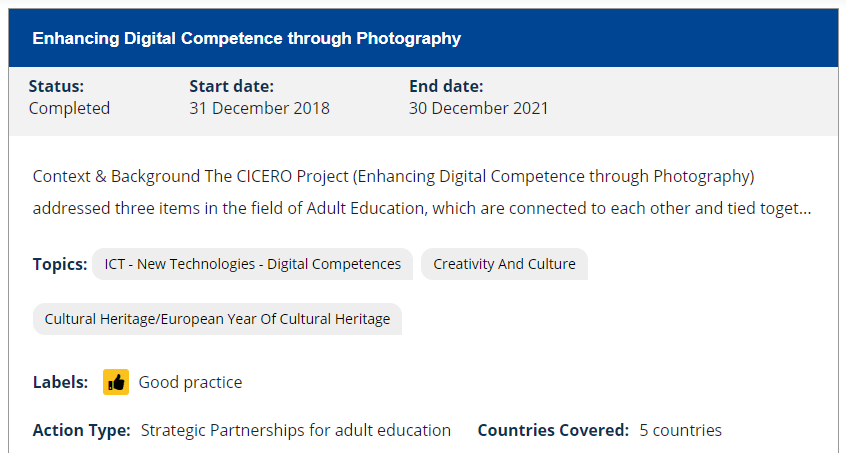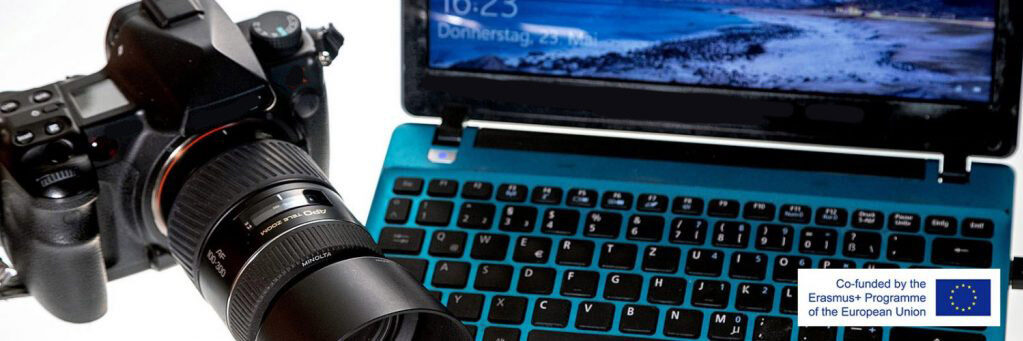The project was closed and evaluated by the Swedish National Agency. We are proud to be awarded with the label for “Good Practice”! Starting to learn certain competencies through an activity that is performed frequently and that is familiar to the user seems to be an excellent way to start the learning process. We publish the screenshot of the projects’ database of the European commission here – but you can read the original following the link to the database.

The idea of using digital photography to envoy digital competencies was evaluated as innovative – and in fact, it is! This approach might be used in other contexts in Adult Education as well.
Project evaluated – here are some highlights
- The team represents an appropriate mix of expertise, profile, and experiences to be able to achieve what was stated in the application.
- The documentation from the meetings indicates engagement among the partners and their active and distributed contributions according to their competencies.
- Given the more generic course structure and distinct open-access license, it has great potential to be applied in other educational contexts and also to enable synergies. The project can be assessed as innovative, in particular since it contributes to new practices and is underpinned by a transparent and detailed methodology.
- The website offers lots of support and guidance for the course activities. These are written to easily be able to transfer to other contexts and to target other groups, which are demonstrated with concrete examples in the transferability and evaluation guide.
Background of this idea
Digital photography can be the engine to motivate people to care about basic digital competencies. This will cover the creation of images (a creative work), the processing of images (a technical endeavor), the storage and administration of images (needs digital competencies), and the use of the created images, for instance in social media (needs digital competences as well as basic legal knowledge).
Finally, digital photography enlarges social contacts (for instance in special interest groups), keeps elderly people active (both in a physical and mental sense), and contributes in numerous instances to promoting cultural heritage
